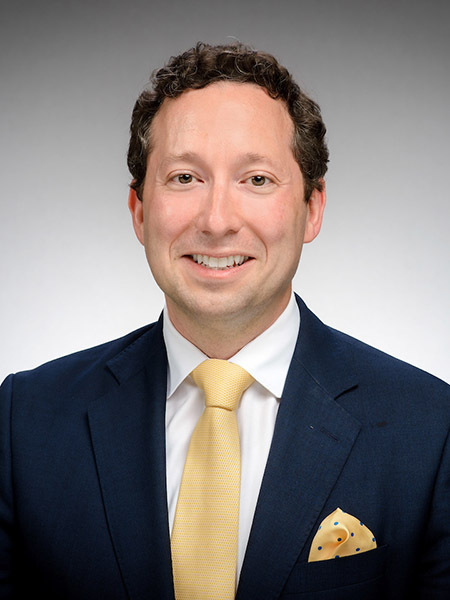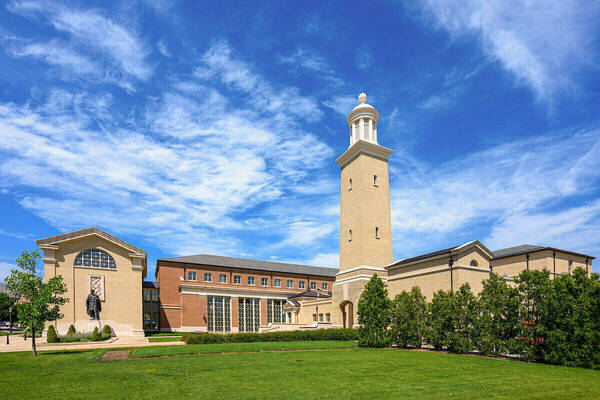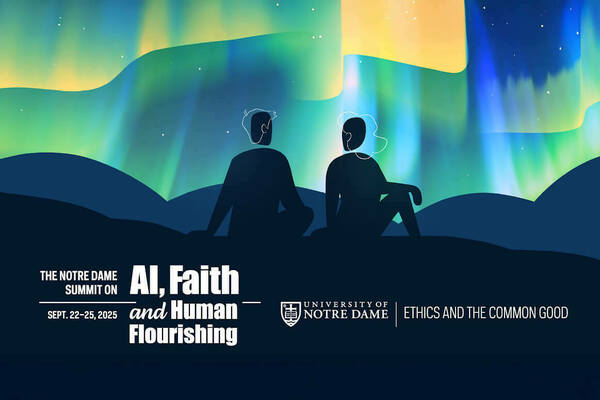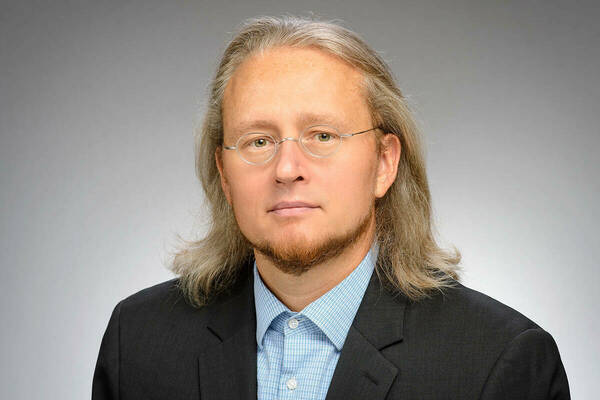Economist Kirk Doran wins UK’s Panmure House Prize honoring interdisciplinary research

Kirk Doran, an associate professor in the Department of Economics at the University of Notre Dame, has won the 2024 Adam Smith Panmure House Prize.
Established in 2021, the prize is named after the forefather of economics and celebrates those who embody his empiricism and long-term interdisciplinary thinking in their research. One of the United Kingdom’s largest academic prizes open to researchers globally, it has been awarded to emerging academic leaders across multiple disciplines, including a business academic, a neurologist and an anthropologist.
“I feel honored and privileged to win the Panmure House Prize. Adam Smith has been an inspiration to me since the first time I began studying social structures and the economy as an undergraduate,” Doran said. “I am particularly inspired by the prize’s aim to explore the relationship between long-term thinking and radical innovation. This is exactly what our current incentive structures both within and outside academia under-incentivize, and that is why Panmure House’s work is so essential here.”
Like Smith, Doran asks fundamental questions that are often hard to find a definitive answer to because they are so overarching. In his research, Doran seeks to identify where and how new knowledge is created in order to ultimately find the cause of long-term per capita economic growth.
Through his subfield of innovation economics, Doran aims to use techniques developed by modern labor economists to answer questions that had been long debated without progress until these techniques were developed. He has applied empirical tactics to measure knowledge generation through bibliometric analysis of interdisciplinary databases — such as papers, patents and medical trials.
His studies find that the development of new knowledge is ultimately based on collaborative relationships in which people inspire and challenge one another.
“We are delighted to see Kirk Doran’s research receive this international recognition,” said John T. McGreevy, the Charles and Jill Fischer Provost. “The Panmure House Prize’s emphasis on long-term, interdisciplinary thinking mirrors the University of Notre Dame’s commitment to scholarly innovation and excellence across the disciplines.”
Doran was one of four finalists from leading global institutions to be considered for the Panmure House Prize. He was supported in pursuing the award by the Office of the Provost and the College of Arts and Letters’ Institute for Scholarship in the Liberal Arts.
With this recognition, Doran plans to continue examining how new knowledge impacts per capita economic growth with a multidisciplinary team. He hopes it will have a policy impact that can benefit productivity.
“I think my research will help to refocus our policy efforts regarding long-term economic growth to the encouragement of deep collaboration among innovative people,” he said. “It is not enough to better educate our workforce or even produce more entrepreneurs, scientists and inventors; such efforts could not possibly produce long-run economic growth unless these individuals enter periods of deep collaboration with each other in the joint production of knowledge.”
Originally published by at al.nd.edu on Oct. 7.
Contact: Tracy DeStazio, associate director of media relations, 574-631-9958 or tdestazi@nd.edu
Latest ND NewsWire
- Notre Dame School of Architecture poised for global leadership through historic investmentThe $150 million gift represents an unprecedented commitment in the 160-year history of American architectural education. In recognition of this landmark gift, the school will be renamed the Matthew and Joyce Walsh School of Architecture at Notre Dame.
- Banks that identify fraudsters increase loyalty, retain more defrauded customers than others who never were compromisedIn a new research study, Vamsi Kanuri, the Viola D. Hank Associate Professor of Marketing at the University of Notre Dame’s Mendoza College of Business, found that banks that identify fraudsters earn customer loyalty and lose customers if they can’t say who was responsible for a fraudulent transaction.
- Notre Dame to host summit on AI, faith and human flourishing, introducing new DELTA frameworkThe Institute for Ethics and the Common Good and the Notre Dame Ethics Initiative will host the Notre Dame Summit on AI, Faith and Human Flourishing on the University’s campus from Monday, Sept. 22 through Thursday, Sept. 25. This event will draw together a dynamic, ecumenical group of educators, faith leaders, technologists, journalists, policymakers and young people who believe in the enduring relevance of Christian ethical thought in a world of powerful AI.
- Notre Dame Democracy Initiative hosts bipartisan conversation with Western state governorsTwo Western state governors known to work across the aisle on policy issues such as water, housing and energy will visit the University of Notre Dame for a fireside chat about how Western state pragmatism can serve as a model for the country to overcome polarization.
- In new research, Roy Scranton explores climate change and the limits of human progressIn his most recent book, “Impasse: Climate Change and the Limits of Progress,” Scranton, an associate professor of English, defines the impasse he sees as “not only political and institutional, but cognitive, existential and narrative” and asserts that the only path forward is through embracing what he terms ethical pessimism. “A lot of people confuse pessimism with nihilism, apathy and despair,” Scranton said. “But pessimism is actually about recognizing our limits, letting go of unrealistic goals, finding solidarity in the fact of human suffering and doing what you can now, not in some utopian future.
- Notre Dame MBA launches deferred admission programThe Notre Dame MBA Deferred Admission Program allows candidates with little or no work experience, including college seniors, to secure admission before reaching the recommended three years of work experience to enroll.













